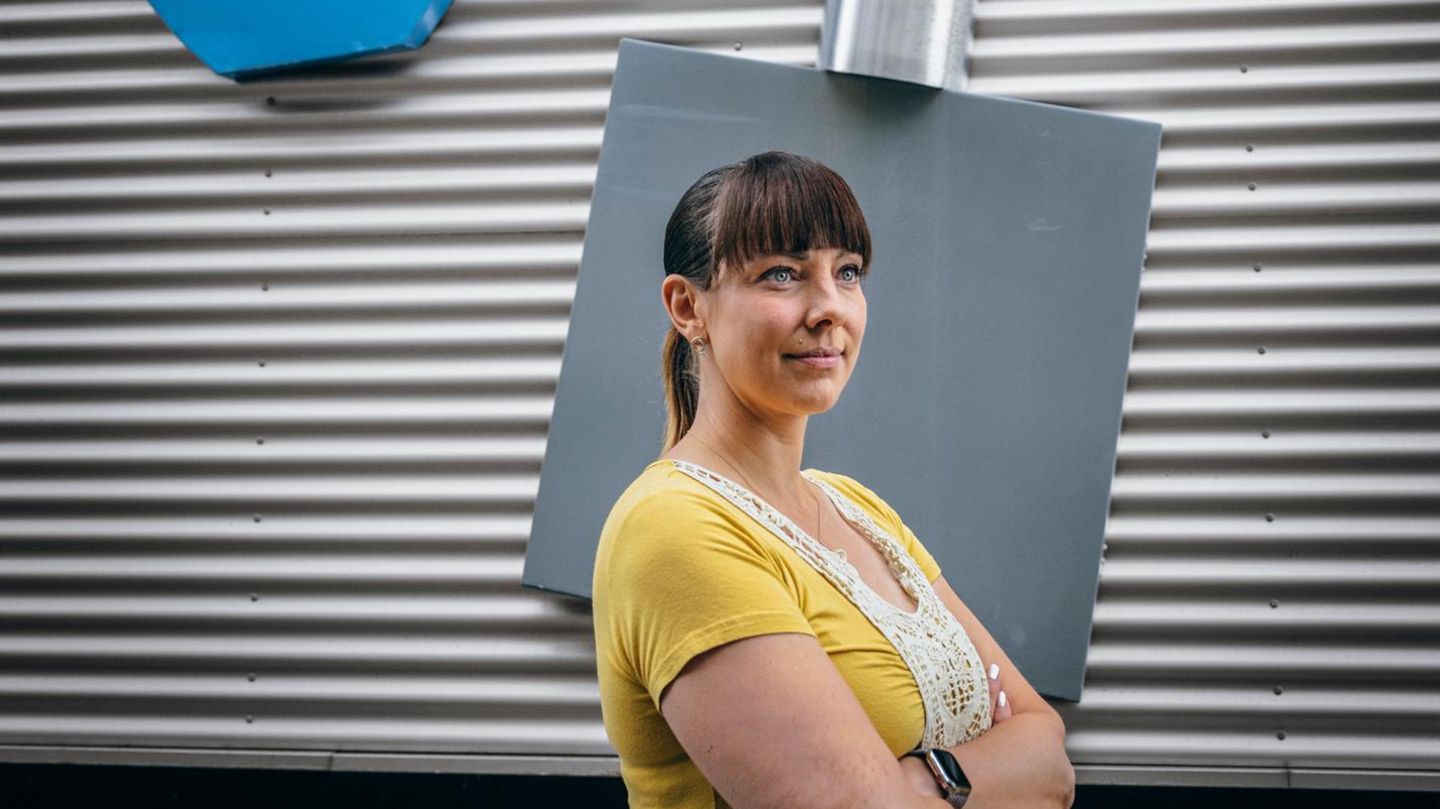Carletta Heinz runs the family business Heinz Glas. She sees the AfD as a major economic risk. She has already laid off employees because of racist conflicts.
This is original content from the Capital brand. This article will be available for ten days on stern.de. After that, you will find it exclusively on capital.de. Capital, like the star to RTL Germany.
Capital: Ms. Heinz, the AfD became the strongest party in the state elections in Thuringia on Sunday. In the Sonneberg II constituency, where your glassworks in Piesau is located, it achieved 41.6 percent. Does this result worry you?
CARLETTA HEINZ: It was to be expected. I still find it very regrettable that it has now actually come to this. I am already worried about Thuringia. It is still unclear what kind of government will be formed. Nobody wants to be in a coalition with the AfD. The CDU with BSW and the Left would have enough seats, but would not actually be able to form a government because they would certainly not be able to agree on many areas.
What does such a result trigger for you as an entrepreneur?
We are already thinking about how the state will develop? What will the framework conditions be like and how will we deal with them? If some of the AfD’s ideas were implemented, Thuringia would certainly not be a state in which we could invest much, because we would no longer be able to survive.
What exactly do you mean?
If green energies such as wind power and solar energy are not expanded as quickly as possible, this will jeopardise our security of supply. As a glass manufacturer, we are an energy-intensive company.
You employ around 4,000 people in 13 countries and recently had a turnover of almost 500 million euros. Is the AfD a risk to your location?
Our first plant is in Piesau in Thuringia. Of course, we want to hold on to it. We have just received funding from the federal government and want to invest a total of 50 to 60 million euros in an electric glass tank that will be powered by green electricity. We are already considering whether it would make more sense to do this somewhere else. We just have to wait and see how the environment develops. It would be business suicide if I set up a plant that I then cannot operate because gas or other fossil fuels for energy generation are limited and renewable energies are not being developed quickly enough. And if immigration were to be curbed as much as the AfD envisions, we would no longer have enough workers.
How important is immigration for Heinz Glas?
Without workers from abroad, we would not have been able to build up our company. Before the fall of the Berlin Wall, our factory in Kleintettau in Upper Franconia was surrounded on three sides, and it was really difficult to survive as an employer here. Then, from the 1960s onwards, Italians, Greeks and Turks came. Many of these guest workers stayed. Their children and grandchildren now work for us.
And today?
We are still dependent on immigration: in our three plants in Germany, 25 percent of the employees are not German citizens. Half of the people we have hired in the last two years do not have a German passport. If we did not have these people, we would no longer be able to operate our plants. It is not possible to automate so much. We need these people, especially in heavy industry. And seriously: nobody else here wants to do this work. It is loud and hot, there are night and weekend shifts. We are grateful that we can even find skilled workers and staff from other countries to do this. I find the AfD’s demands to limit immigration as extreme as they envisage dangerous and terrible. I do not know how industry in Germany can be maintained like this.
Are there many AfD supporters at Heinz Glas?
If more than 40 percent of the voters in the Sonneberg constituency voted for the AfD, things will be no different in our Piesau plant.
How do you deal with politics in your company?
We live in a democracy and everyone has their own free choice. We make our position clear and try to explain it to people. There are also business owners who have publicly stated that they do not want people who vote for the AfD or sympathize with them to work for them. I think that is completely wrong. But what we obviously do not accept is when racism spreads in the company and people are attacked. Unfortunately, there have also been isolated cases where foreign colleagues have been spat on. We fire people who do such things without notice.
You send your employees to values and democracy workshops.
That’s because of the current mood. And because I think it’s important that we communicate our values and our opinions to people. Since we’re currently undergoing renovations in Piesau and production is at a standstill, the whole workforce can listen to it.
Many business owners traditionally refrain from making political statements so as not to scare away customers and employees. Most of them have remained silent on the subject of the AfD for a long time.
I think it’s a real shame and also wrong that so few entrepreneurs say anything about the topic. When a reporter asked me a few weeks ago, she found exactly two people within a 150-kilometer radius, from Nuremberg to Tettau, who had even conducted an interview with her on the topic. That’s really sad.
What made you come out of hiding?
I’m not coming out of hiding. I’ve never been in hiding. I always say what I think. Just as I don’t demonize people who sympathize with the AfD or throw them out of the company, I hope that my opinion will be accepted by these people. If not, I don’t care. Anyone who thinks they’re quitting their job because their boss has a problem with the party should just work somewhere else. That’s why I’m not keeping my mouth shut. And fortunately, other voices from the business world have recently become louder. It’s always easier to speak up in a community. You can’t always agree, but you should always listen to and accept the opinions of others.
The companies are probably united by their outrage at Thuringia’s AfD state leader Björn Höcke, who wishes “serious, serious economic turbulence” for family businesses that have joined together in the “Made in Germany. Made by Diversity” alliance.
That’s not possible. How can you wish the downfall of a company just because it doesn’t agree with you?
You yourself have had involuntary dealings with the AfD: you publicly distanced yourself from a vigil to preserve jobs in the glass industry, which the AfD had called for.
Because we really thought it was a cheek. The AfD tried to use the gas crisis to attach itself to our energy problem. But nobody talked to us. I don’t think it’s right when someone claims “we’re saving the glass industry” but has nothing to do with the industry.
How do you perceive the social climate?
Skilled workers who come from abroad will probably look for somewhere else to live than Thuringia or Saxony. I see this in my closest circle of friends and family: my cousin is the daughter of an African-American soldier. She lives in Franconia right on the state border and no longer dares to go shopping in Thuringia with her children. I have friends with a Turkish background who have been living here for three generations. They are afraid.
Source: Stern




